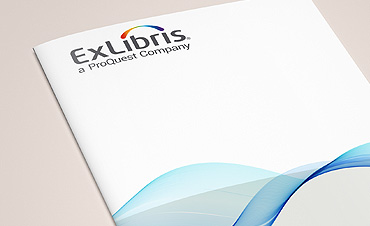March 8, 2006
Jerusalem, Israel
The Ex Libris Group is pleased to announce the general release of version 18 of the ALEPH® 500 integrated library system. With this product release, Ex Libris continues to offer major enhancements reflecting the companys user-centric development strategy.
Version 18 focuses on interoperability, serving evolving patron expectations, and meeting local needs over a global market. Ex Libris is proud that the entire list of enhancements proposed by IGeLU (International Group of Ex Libris Users—previously ICAU) has been implemented in version 18. Significant new ILL and interoperability functionality, and other features, have been driven by the dedicated ALEPH user community.
Some highlights of the many enhancements in version 18:
- ALEPH 500 empowers any user to create custom RSS feeds, with just a single click from the OPAC. The RSS feeds enable the viewing of new search results from personalized portals. Bloggers can include RSS feeds from ALEPH on their blog pages. ALEPH 500 OPAC users can share RSS feeds with students, colleagues, and friends as they become available in the catalog. Librarians can use their expertise to define RSS feeds for new book lists, popular searches, bibliographies, or special collections.
- Version 18 also supports OpenSearch RSS, enabling search of the ALEPH catalog from multi-site search engines such as A9.com. Support for RSS and OpenSearch RSS is part of the Ex Libris initiative for collaborative and social computing in a user-centric universe. “Ex Libris will continue to empower users in molding library resources to individual needs, and to deliver library information to each user’s space”, says Katriel Reichman, ALEPH Product Manager. “We call this focus user centric, user space.”
- Expanded support for Super CJK (Chinese, Japanese, and Korean) enables version 18 to fully handle CJK Unified Ideographs (Extension B). Ex Libris success in China, Korea, Taiwan, and other Asian countries, has increased the importance of offering the fullest range of CJK support.
- Version 18 features support for Korean MARC (KORMARC), including complex handling of single titles–held and displayed in multiple character sets. ALEPH 500 supports Hangul transliteration of Han characters – whether Korean, Chinese or Japanese. End-users and librarians alike will be able to search for Han entries by inputting requests either in Hangul or in the original Han.
- The new PDQ – Patron Direct Q – provides powerful and robust intra-consortia borrowing. At sites where several libraries share a single catalog, patrons can now directly query the various catalog records for the whole consortium, place a request, and indicate pickup and return locations. The system automatically chooses the best library to supply the requested item. This quick and easy solution provides maximum flexibility to the patron, while allowing each library to maintain autonomy over circulation policies.
- Interlibrary Loan functionality in version 18 integrates the technology and tools of ISO ILL with traditional ALEPH ILL services. The result is one powerful system with increased flexibility integrated directly into the ALEPH server and database, to suit the varying needs of customers all over the world.
- Additional enhancements in version 18 include expanded X-services enabling, among other functionalities, display of borrower information in the institutional portal; improved NCIP support for interoperability, which supports services such as user authentication, item and user look up, check in and check out, and item request, cancellation, and acceptance; enhanced authority control; better staff privilege management; and expanded OPAC display features.
About Ex Libris:
Ex Libris is a leading worldwide developer and provider of high-performance applications for libraries, information centers, and researchers. ALEPH, the Ex Libris integrated library solution, has been installed at over 1500 sites in 62 countries. MetaLib®, the information portal for library collections, and SFX®, the context-sensitive linking solution for heterogeneous electronic resources in the scholarly information environment, have collectively been purchased by more than 900 institutions in 36 countries. DigiTool®, a solution for the construction of digital collections, and Verde®, the new electronic resource management (ERM) system, complete the Ex Libris product suite.




